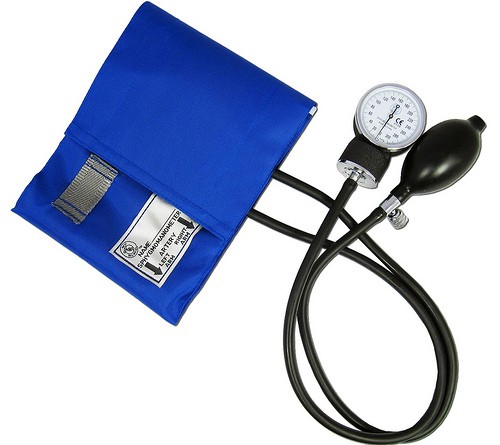
The sudden rise in blood pressure in middle age may be an early sign of Alzheimer's disease, researchers reveal.
American researchers led by Dr Daniel A. Nation from the VA San Diego Healthcare System found that pulse pressure levels in middle age accurately predicted the risk of memory loss later in life.
Blood pressure is a term used to measure the force of the blood flow against the walls of the blood vessels, each time the heart beats. Blood pressure readings that shows systolic pressure and diastolic pressure at or below 120 by 80 (120/80 mmHG) is considered to be normal, above 140/90 mmHG indicates high blood pressure, while readings below 90/60 mmHG is considered to be low BP. Pulse pressure is the difference between the systolic and diastolic blood pressure.
The study included 177 individuals without any symptoms of Alzheimer's disease. The participants were aged above 55. Researchers measured and recorded pulse pressure of the participants. Through lumbar punctures, spinal fluid was collected and tested.
Middle-aged people with a higher pulse pressure were found carrying biomarkers of Alzheimer's disease like amyloid beta, or plaques, and p-tau protein, or tangles, in their cerebral spinal fluid than people with lower pulse pressure. Each 10 point rise in pulse pressure contributed to a 1.5 s pictograms per millileter rise in p-tau protein in the spinal fluid.
"These results suggest that the forces involved in blood circulation may be related to the development of the hallmark Alzheimer's disease signs that cause loss of brain cells," study author Dr Nation, said in a news release. "This is consistent with findings indicating that high blood pressure in middle age is a better predictor of later problems with memory and thinking skills and loss of brain cells than high blood pressure in old age."
The study has been published in the online edition of journal Neurology.

















